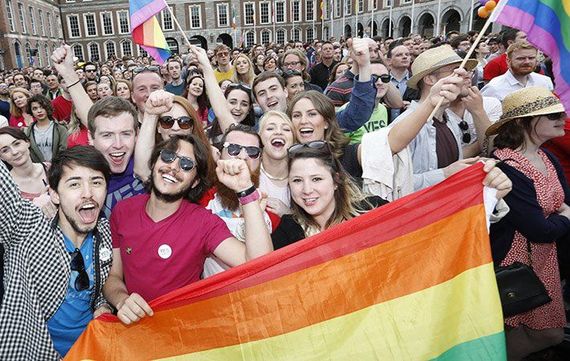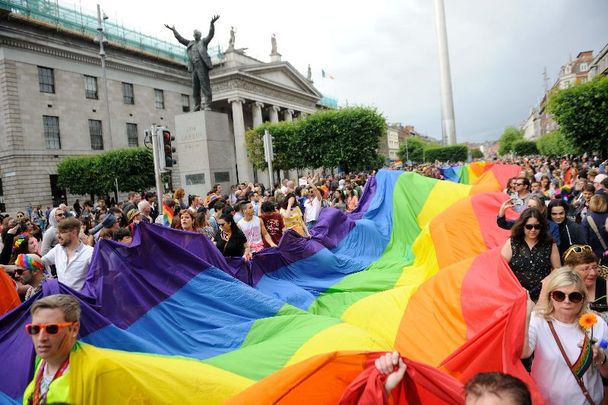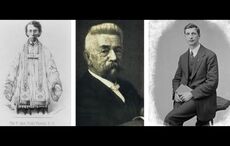A look at how the celebration of Pride has evolved in Ireland over the past half-century.
Prior to the popularization of the term "Pride" in the 1980s, there were several events calling for LGBTQ rights in Dublin.
They began relatively small with an annual picnic in Merrion Square to raise awareness of the Stonewall Riots that took place in New York City in 1969 to Dubliners.
In what is considered Ireland's first Pride march, ten people marched from the Department of Justice to the British Embassy to protest the criminalisation of homosexuality (under the Offences Against the Persons Act), which dated back to the Victorian Era on June 27, 1974.
Five years later, Ireland's first Pride Week was held between June 25 and July 1 1979, organised by the National Gay and Lesbian Federation. The 10-day event was established to commemorate the 1969 Stonewall Riots and to draw attention to the difficulty and oppression that members of the LGBTQ+ community in Irish faced.
The first large-scale LGBTQ+ protest march took place in Dublin in March 1983, organized in response to the release of five men who brutally murdered Declan Flynn in a homophobic attack in Dublin's Fairview Park. About 900 people marched from Liberty Hall to Fairview Park to express their outrage and desire for justice. The march was a demand for change and marked a turning point for recognizing the injustices against LGBTQ+ people.
Later that year, the National LGBT Federation organized the first Gay Pride parade in Ireland. On June 25 1983, 200 people walked from Stephen’s Green to the GPO on O’Connell Street.
The tireless efforts of LGBTQ campaigners began to bear fruit in the 1990s when homosexuality was finally decriminalized in Ireland in 1993, while the introduction of the Employment Equality Act in 1998 prohibited discrimination in the workplace based on sexual orientation.
It took a further 12 years before the introduction of the Civil Partnership Act in 2010, which served as a stepping stone to marriage equality. The act allowed same-sex couples to enter into civil partnerships and receive almost the same rights as a married couple but did not change the law on issues relating to children, including guardianship and adoption.
The marriage equality referendum in 2015 saw Ireland become the first country in the world to legalize same-sex marriage by popular vote, with an overwhelming majority of 62% of voters voting in favor.

Dublin Castle celebrations after a "Yes" vote on marriage equality in Ireland, 2015.
The story was different in Northern Ireland, but the struggle was similar.
The matters of same-sex marriage had previously been deemed to be a “devolved matter” in British Parliament, meaning it should be left up to Northern Ireland’s Assembly to decide.
However, with no Assembly in place for more than two years in Northern Ireland, backbench members of the British Labour party argued that the two issues can no longer be ignored.
In July 2019, Labour MP Conor McGinn, a native of Co Armagh, introduced the same-sex marriage bill. The UK’s House of Commons voted 383 votes to 73 votes in favor of marriage equality. The bill was to be implemented in the instance of no Assembly having been formed by a deadline of October 21.
When the Northern Ireland Assembly at Stormont finally returned after a three-year absence in early January 2020, the October 21 deadline had already been missed, allowing for same-sex marriage to become legal on January 13.
The following month, Robyn Peoples and Sharni Edwards became the first same-sex couple to legally get married in Northern Ireland.

Robyn Peoples (L) and Sharni Edwards after they became the first same-sex couple to legally get married in Northern Ireland. (Getty Images)
Ready to celebrate? You can learn more about all of the Pride events across the island of Ireland from Discover Ireland.
*Originally published in 2023. Updated in 2024.




Comments